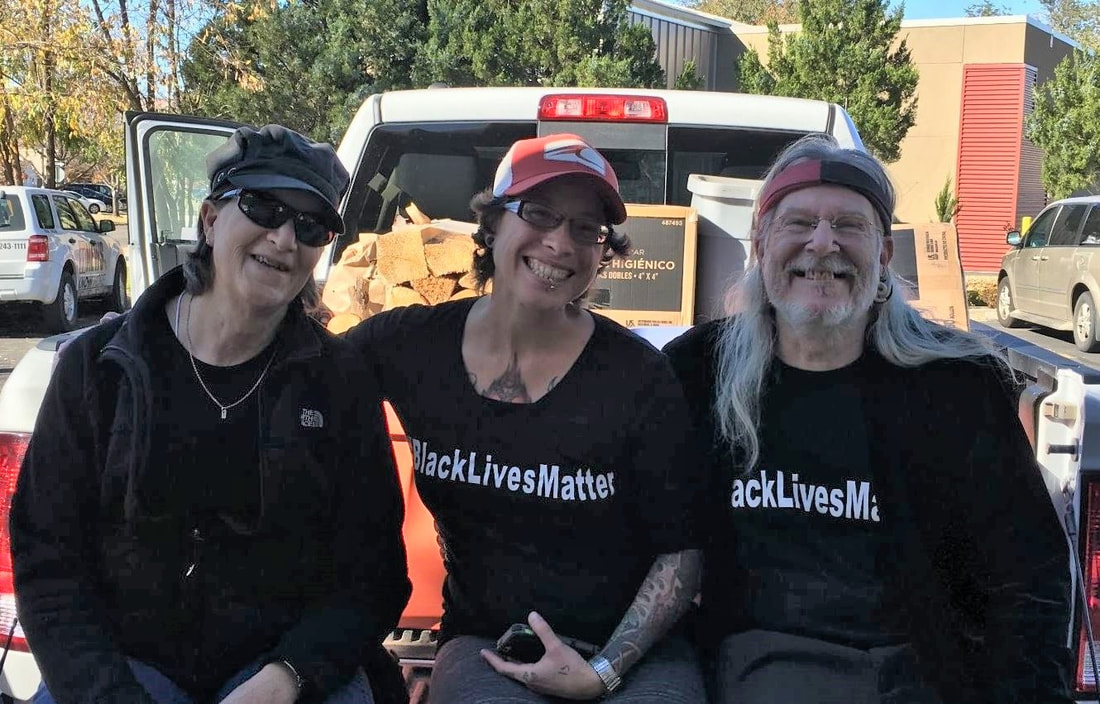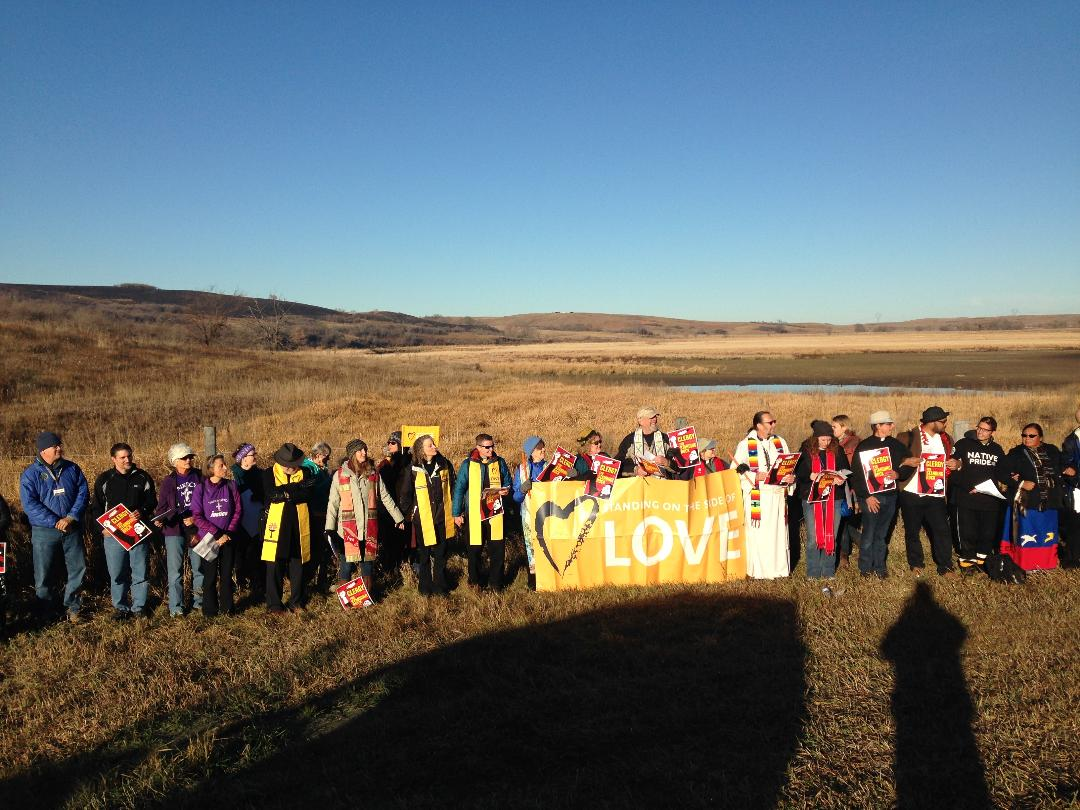From Elizabeth High, UUCGV Green TeamIn November 2016, three UUCGV congregants traveled to the No Dakota Access Pipeline (#NoDAPL) protests. When they later presented a worship service about their experience, my eyes started to open to the injustices that are occurring, the urgency to stand up against these injustices, and the beauty of the community that is standing up for the earth and our survival as a species.
Since that time, I have gradually become convinced that even though changes in our personal habits to reduce our carbon footprint are important, even more crucial is joining our voices in community and becoming a part of a movement to pressure the large-scale changes that are needed to save us. This year, I have set myself a goal to learn more about and provide more support to the Indigenous-led movement to protect land and water and to keep carbon in the ground. Climate scientist Katharine Hayhoe notes that “Seventy-three percent of people in the United States agree the planet is warming... And 62 percent of Americans recognize that the main reason for this warming is human activity; specifically, burning fossil fuels (that’s about three-quarters of the problem) and deforestation and agriculture (that’s most of the other quarter).” With a plethora of renewable energy options available to us today, it is vitally important to put a stop to new fossil fuel infrastructure and pipelines. Indigenous groups have been playing a leading role in standing up against these projects: a recent analysis found that, “Indigenous resistance has stopped or delayed greenhouse gas pollution equivalent to at least one-quarter of annual U.S. and Canadian emissions.” This grassroots Indigenous movement is also working to open our eyes to the beautiful values that guided people for millennia before the modern era brought in the disastrous cycle of consumption and pollution that has brought us to the crisis we are in today. As Tara Houska-Zhaabowekwe, a Couchiching First Nation Ojibwe, writes, “I suggest we do far, far more to address our values– the core principles that guide us…Across many Indigenous teachings and cultures, several threads weave in and out, creating similar patterns and core understandings…These are values centered in balance, in life, not in human fallacy. They are values that require commitment and self-sacrifice. Humility, recognition of fragility and our place in the circular framework of nature, empathy, courage, respect– those are just a few threads of the many values that are meant to guide us through the whole of our lives.” Unitarian Universalists have been active allies of Indigenous land defenders and water protectors for years. A December 2021 UU World article describes much of this involvement, including UU involvement in the #NoDAPL protest and more recently in the Stop Line 3 protest in Minnesota. To join with other UUs in supporting the Indigenous resistance against carbon, go to the webpage for the UU Ministry for Earth (uumfe.org) and subscribe to their emails. Here you can learn about letter-writing/petition-signing opportunities, protest opportunities, movie viewings to raise money for Indigenous-led climate justice organizations, and more. Indigenous activists in North America are currently resisting fossil fuel projects equal in pollution to 400 new coal-fired power plants. Imagine if more of us joined our voices with these Indigenous activists and helped turn the tide of public opinion against such projects. Imagine if these projects could no longer get funding or insurance or political support to move forward. Now THAT would be reducing our collective carbon footprint! - Elizabeth High, UUCGV Green Team Reference details from this article are available at : www.grandvalleyuu.org/green-team Comments are closed.
|
Archives
June 2023
Categories
All
|
|
|



 RSS Feed
RSS Feed